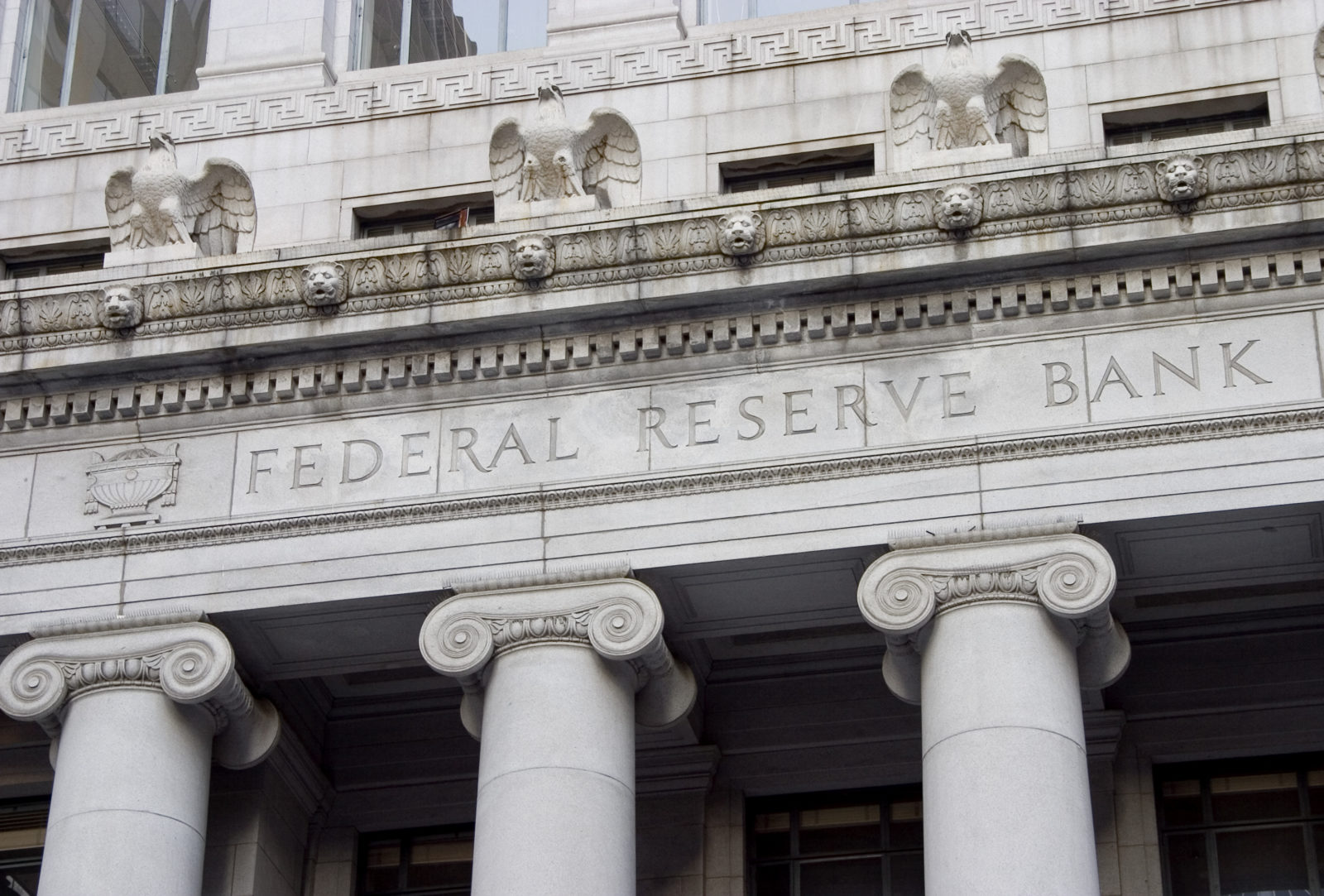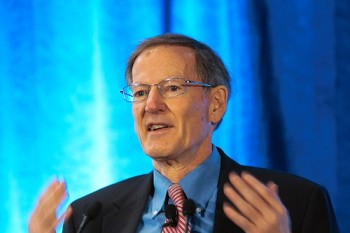


The BRICs Go For Gold

Governor Doug Ducey’s Landmark Legacy Worthy of Tribute

Three Steps to Save America from Collapse
Our monetary system is broken. It’s given us low growth, a shrinking job force, inequality beyond what a healthy economy would produce, inefficiency, and the unnatural growth of finance as a portion of the economy. Our aging Federal Reserve System starves both small businesses and Silicon Valley of the capital needed to grow jobs and wages. Fed policy translates into Read More ›
The Fed ‘is a god that has failed’
Why does Wall Street keep recovering after recessions but the economy seemingly never does? The reason, as I document in my book, “The Scandal of Money: Why Wall Street Recovers but the Economy Never Does” is that Washington and the Federal Reserve together have created a closed loop economy where the Fed creates money for the government and the S&P Read More ›
Trump Can Succeed On Trade By Ending Global Currency Manipulation
World trade in goods and services has morphed into a gigantic manipulative carnival of currency trading. This needs to change. Folks, we have a consensus here. Formidable thinkers such as Paul Krugman, Larry Summers, and David Stockman, some 370 economists including 19 Nobel Laureates, and editors at the Economist, Fortune, and Barron’s all believe that Donald Trump as president is Read More ›

The Gilder
George Gilder’s brilliant new book — The Scandal of Money — underscores an odd fact. There’s an expanding list of newspapermen and writers who, having reached a certain age and covered the intellectual and political wars, have turned late in their careers and at the peak of their powers to the problem of money. They are riveted by the recognition Read More ›

Gold Is The Money Of The Future: Gilder’s 21st Century Case For Gold
In his fascinating recent book, The 21st Century Case For Gold, George Gilder flips the debate back against those who would denigrate the gold standard as a ‘barbarous relic’. For Gilder, fluctuating currency values are the relic, totally unfit for the modern world, rendered indefensible by cutting edge information theory, a major source of political and economic corruption, and one of our most significant barriers to progress.
The gold standard had developed a sort of ‘retro’ branding. It’s thought of as ‘pre’ — pre-Keynesian, pre-modern, a throw-back to the allegedly outmoded classical liberalism which was shattered by World War I. Gilder, however, is a man of the future, a technology forecaster who was early to see the power of the microchip and after that, once again early to see the expansive significance of the internet, and then one of the first to see the shift towards the cloud. Gilder’s biases seem to tend far more towards excess technophilia than towards nostalgia.
So then, what has shifted a man like this towards the gold standard? The mathematics which began to appear in the mid-20th century are the mathematics of the unknown. They appear at the limits of calculus and all other mathematical systems based on a deterministic future. They are about incompleteness of our systems (Kurt Gödel) or about intentionally hidden information (cryptography) and about possibilities ruled out and formerly unknown information being revealed (Claude Shannon). These new branches of mathematics make a more compelling case for gold than earlier branches of mathematics. Isaac Newton developed both calculus and the British gold standard, but even he could not yet see the chief advantage of that system. Mathematics from Euclid to Calculus is about counting quantity of what is seen: number, space, mass. Calculus added motion to the static formulae of ancient mathematics, but still did not transcend material categories. But our world is based on a leap into measuring something non-material and non-spatial — information. Information theory along with the incompleteness theorem makes the information age possible.
And that’s what brings us to gold. Information theory is based on making a distinction between channel and signal. Signal comes to us through a channel: a wire, a cable, or a radio wave. The key to distinguishing between the channel and signal lies in the ability to recognize what comes from the channel in order to distinguish it from what comes through the channel. If a receiver knows in advance what fluctuations will arise from the medium then they can be anticipated, recognized, and removed. For this reason, signal is the part of the message which is a surprise.
Markets are an information system. Hayek saw that. Money is the channel. Prices are the message. If money is based on a stable unit, then fluctuations in price must be signals. Price increases convey downstream some piece of information from upstream, for example an increase in demand. But if the unit of account fluctuates, then how can one disentangle channel from signal? Is a price increase an increase in demand for a product or is it a devaluation of currency? The entrepreneur is reduced to some form of guessing. Maybe house prices are rising because more people simply want more and bigger houses. If so, then expansion is the wise course of action. But what if house prices are going up because mortgage markets were the place where newly created money first touched down in the economy? If so, then there is a bubble in the housing market. If this is the case, expansion is risky.
The case for gold was always stronger than the case for fiat currencies, but information theory adds strength to strength, and more clearly reveals the superiority of a stable monetary unit. Stable money is the only way to distinguish noise from signal. And not only does information technology require the proper distinction between noise and signal within the technology system, it also requires clear signaling in the financing of technology from outside the system. Technology tends to require longer time horizons for profitability and therefore it requires clearer signal. This is especially true of the single most important price signal the economy offers: the interest rate. When noise drowns out the signal, then long-range planning becomes impossible. Time frames contract. Investment becomes more of a zero-sum game, based on who can move the fastest, or who has access to the largest economies of scale, or most importantly, who has access to the fiat money spigot.
I sat down over a Skype line with Gilder recently and the signal was clear – in every sense. You can listen to the entire interview here, and you can read a partial transcript (edited for clarity) below:
JERRY: I’m Jerry Bowyer. We’re joined today by George Gilder, who has written a fascinating book, a nice follow-up to his earlier book “Knowledge and Power”. This is a shorter work, the title is “The 21st Century Case For Gold: A New Information Theory of Money”.
George, Keynes famously said that gold, as a monetary standard, was a barbarous relic, implying that if it ever had any validity it would become obsolete. It seems to me that you’re making the case here that the arguments for gold in the 21st century are at least as strong as they were in the past and that modern mathematics and science is strengthening rather than weakening the case for gold. Have I read that correctly?
GILDER: That is correct. The key problem of money is having it serve as a metric, as a measuring stick, as a way of valuing commodities. And it cannot — a measuring stick can’t be part of what it measures. It can’t change with what it measures. And today the measuring stick of currencies is established in an oceanic turbulent global currency market that is seventy-three times larger than all the goods and services markets in the world put together. And some 200 times larger than all the stock markets in the world put together.These are rough, rough, huge magnitudes, but they convey a situation where the measuring stick is consuming the whole global economy. And this is a major source of profits for all for the big banks that are in league with governments and the central banks. And, essentially, we’ve turned money into a meaningless self-referential loop that is totally divorced from any physical constant or any of the properties of measurement.
JERRY: Is that part of the problem with alternatives to gold standards that use some kind of broad-base commodity standard –
GILDER: Yeah.
JERRY: — or some GDP standards, that you have a feedback loop, therefore, if the measure — if what you’re using to measure is also an ingredient, then it can’t possibly be mathematically stable, because it has a dynamic relationship with itself. Therefore, say a basket of commodities-backed currency standard can’t possibly do as well as gold, is that right?
GILDER: Yes. I mean the commodity standard consists of commodities that are valued by the measuring stick that in turn’s valued by the commodities. That’s the self-referential loop. It doesn’t have any anchor in a stable source of value.
And the key insight of my book, which will be published again in April in an expanded edition called “The Scandal of Money” is that money has to be scarce ultimately. And so you have to ask the question of what remains scarce when everything else, all the commodities and products and inventions and wealth of the globe are constantly expanding. And what remains scarce when everything else grows more abundant is time. And money has to be ultimately based on the scarcity of time.
And gold, contrary to Keynes’ belief that is merely a commodity and thus part of what it measures, gold cancels out capital and technology, because as mining gear has progressed, as it’s become more and more efficient to mine gold, the gold to be mined has –
JERRY: It’s harder to find.
GILDER: — has become harder and harder to find and extract, and thinner deposits, and more remote, deeper lodes, so that pretty much by happenstance or providence, or whatever you want to call it, gold, through the years, has been a measure of the time to extract it, which has not changed much in centuries.
JERRY: So gold is part clock?
GILDER: Yeah, gold is really — that’s a good way to put it, gold is clock.
JERRY: Just like — I think you — go ahead; I’m sorry.
GILDER: And Satoshi, the inventor of bitcoin — where I’ve really found this, was when I found that Satoshi Nakamoto, the pseudonymous inventor of bitcoin, was explicitly mimicking gold. And the key thing he did to mimic gold was to cancel Moore’s Law in bitcoin and make it exclusively based on the passage of time.
JERRY: Interesting.
GILDER: And time can’t be hoarded; time can’t be stolen; time can’t be manipulated. And it’s –
JERRY: It can’t be redistributed.
GILDER: Can’t be redistributed.
JERRY: The government can’t take hours or years from me and give them to you or vice versa.
GILDER: Yeah. But that’s what it’s doing. That’s a very good — but when it divorces money from time, you know canceling out interest rates, for example — interest rates are the time value of money, or whatever — so when you have zero interest rates, essentially, you are nullifying the information about time that money ordinarily conveys.
So what happens is, when money is divorced from time, is the people who manipulate money with gigahertz computers, or whatever, can actually do fine. And you have this huge expansion of commerce in the econ — I mean, finance, financialization of the economy, a hypertrophy of finance.
But meanwhile the people who are caught back in the time economy, the people who are paid by the hour, or by the month, are — can’t benefit. So you have this — what’s depicted as egregious inequality arising. But this is really the result of financialization, the hypertrophy of finance that results from the government campaign to nullify the time factor in money.
JERRY: That’s interesting. I remember, I think it was about a year ago that there was a big hubbub in the financial media about Michael Lewis and his findings about ultra-high-frequency finance. And it sort of broke down into the normal sort of finger waving, sort of good government scoldiness of it’s terrible that big firms have this huge advantage over the little guy because they can do hyper frequency trading, high-frequency trading. But I suppose your answer — response to that would be the problem isn’t that they have faster computers; the problem is that faster computers are needed, that so much volatility is added through currency that the only way to effectively make money is in the zero-sum game of who’s faster, who can get to the trade faster.
GILDER: Well, that’s certainly a factor. And the way I put it is that when you take all the time information out of money, you end up shrinking the horizons of the economy, shrinking the horizons of investment. And what the “flash boys” that Michael Lewis chronicles show is the shrinkage of the time factor in the economy to milliseconds.
Read More ›
George Gilder vs. Milton Friedman on the Function of Money
George Gilder states that free market icon Milton Friedman’s quantity theory of money “has been proven wrong,” arguing that a stable dollar as essential to a prosperous economy. Read More ›
High Tech Guru George Gilder Demolishes A Critical Myth About The Gold Standard
This article, published by Forbes, discusses Discovery Institute Senior Fellow George Gilder: What if the gold standard is not an antique but, rather, a “timeless classic” (as termed in a speech by Bundesbank President Jens Weidmann in September 2012)? High tech guru George Gilder deploys cutting-edge science to show why this is so, based on Shannon information theory. Gilder’s analysis is neither eccentric nor anomalous. Read More ›